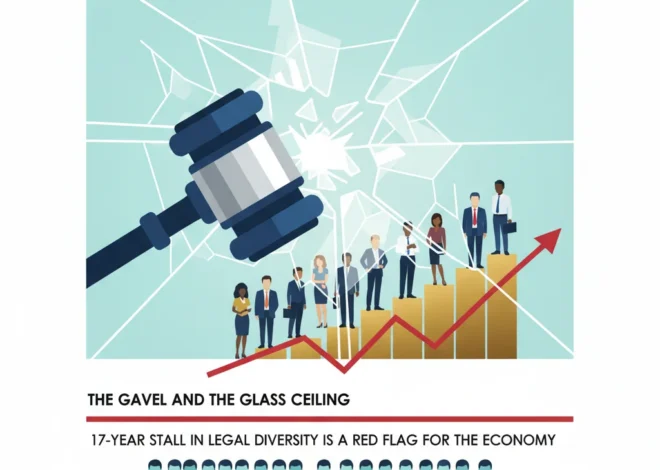
The Ministry of Truth on Wall Street: Are Orwellian Narratives Shaping Your Portfolio?
The Echo of Dystopia in Your Daily Market Report
In a brief but potent letter to the Financial Times, a reader from Ross-on-Wye, UK, drew a chilling parallel between the rhetoric of a political commentator and the dystopian world of George Orwell’s ‘1984’. The letter, titled “Disturbing parallels: Hegseth and Orwell’s ‘1984’,” serves as a stark reminder that the novel’s themes are not confined to political discourse or historical analysis. They are alive and well, subtly influencing a domain where clarity and truth are paramount: the world of finance, investing, and economics.
Orwell’s masterpiece was a warning against the manipulation of truth, the perversion of language, and the power of a controlled narrative to shape reality. While the novel’s imagery is of totalitarian states, its core mechanisms—Newspeak, Doublethink, and the rewriting of history—provide a powerful lens through which to examine the modern financial landscape. From the carefully crafted statements of central bankers to the euphoric narratives driving fintech bubbles, the Orwellian toolkit is surprisingly relevant for today’s investors, traders, and business leaders. This isn’t about a shadowy conspiracy; it’s about understanding the psychology of language and how it can be used to manage perception, influence market behavior, and ultimately, impact your portfolio.
Newspeak in the C-Suite and Central Banking
At the heart of ‘1984’ is Newspeak, a language deliberately engineered to narrow the range of thought. By eliminating words and nuance, the Party makes it impossible to even conceive of rebellious ideas. While our financial vocabulary is expanding, not shrinking, the function of certain terms feels eerily similar: to obscure, to soften, and to direct thought away from uncomfortable realities.
Consider the language of modern central banking. The term “Quantitative Easing” (QE) entered the mainstream lexicon after the 2008 financial crisis. It sounds complex and clinical. In essence, it describes a process where a central bank creates new money to buy financial assets, primarily government bonds. A simpler, more direct description might be “large-scale electronic money printing,” a phrase that carries far more alarming connotations about currency debasement and inflation. As the St. Louis Federal Reserve explains, QE is intended to lower interest rates and increase the money supply. Yet, the term “easing” itself is a masterpiece of semantic soothing, suggesting a gentle release of pressure rather than a massive market intervention with far-reaching consequences for the economy and your investments.
This linguistic engineering extends to corporate finance. Publicly traded companies often report both GAAP (Generally Accepted Accounting Principles) earnings and “non-GAAP” earnings. While non-GAAP figures can provide insight by excluding one-off expenses, they can also be used to paint a rosier picture of a company’s performance. Terms like “synergies” in merger announcements promise seamless, value-creating integration, glossing over the brutal realities of layoffs and cultural clashes that often follow. As the U.S. Securities and Exchange Commission (SEC) has cautioned, investors must be wary of how these custom metrics can be used to obscure underlying problems. It’s a form of corporate Newspeak, designed to make you focus on a preferred narrative of success.
The Investor’s Doublethink: Holding Contradictory Beliefs for Profit
Orwell’s concept of “Doublethink” is perhaps his most profound psychological insight: the ability to hold two completely contradictory beliefs in one’s mind simultaneously, and accept both of them. Investors and market participants engage in a form of Doublethink daily. How else can one explain the phenomenon of buying a wildly overvalued stock? An investor might know, based on fundamental analysis of the economy and company financials, that a particular stock’s price is detached from reality. Simultaneously, they believe the price will continue to rise due to market momentum, social media hype, or the promise of disruptive financial technology—and they buy in anyway.
This was on full display during the “transitory inflation” debate of 2021-2022. Central bankers insisted that rising prices were a temporary phenomenon, even as consumers saw their grocery and gas bills skyrocket. The market had to hold two conflicting ideas: 1) The official narrative from the highest levels of economic policy was that inflation was not a structural problem. 2) The real-world data and personal experience showed persistent and accelerating price increases. For a time, the market sided with the official narrative, a collective act of Doublethink that allowed asset prices to remain elevated before the inevitable, painful correction.
Below is a table illustrating how these Orwellian concepts manifest in the financial world:
| Orwellian Concept | Modern Financial/Economic Parallel | Impact on Investors & the Economy |
|---|---|---|
| Newspeak | “Quantitative Easing,” “Non-GAAP Earnings,” “Synergies” | Masks underlying risks, inflates asset valuations, and creates a false sense of corporate or economic health. |
| Doublethink | Believing inflation is “transitory” while prices soar; buying overvalued assets because “the trend is your friend.” | Leads to poor risk management, encourages speculative bubbles, and can result in significant financial losses when reality asserts itself. |
| Ministry of Truth (Rewriting History) | Restating past corporate earnings; shifting economic forecasts and pretending previous ones never existed. | Erodes trust in institutions, makes historical analysis unreliable, and prevents learning from past mistakes in trading and policy. |
The Memory Hole of the Stock Market
In ‘1984,’ the Ministry of Truth used the “memory hole” to dispose of historical documents that contradicted the Party’s current narrative. The past was perpetually updated to align with the present. The financial world has its own version of the memory hole. Companies quietly restate previous earnings reports. Pundits who made wildly incorrect stock market predictions are never held to account, their failed forecasts conveniently forgotten as they issue new ones. The narrative simply moves on.
Think of the hype cycles in financial technology and blockchain. During a bull run, the narrative is that “this time it’s different”—that traditional valuation metrics no longer apply to this new paradigm. When the bubble bursts, the losses are immense, but the collective memory is short. The narrative is quietly memory-holed, and a few years later, a new story emerges about a different “revolutionary” technology, and the cycle begins anew. This perpetual rewriting of recent history prevents the market from learning durable lessons, creating a boom-and-bust rhythm that benefits insiders and harms the average investor.
Intellectual Sovereignty: Your Defense Against Financial Propaganda
Recognizing these Orwellian patterns in the economy and stock market is not about becoming a cynic; it’s about becoming a realist. It’s the first step toward developing intellectual sovereignty in a world saturated with carefully constructed narratives. So, how can an investor, business leader, or citizen protect themselves?
- Translate the Newspeak: When you hear a term like “quantitative easing,” mentally translate it to “money printing.” When a company boasts of “pro-forma earnings,” immediately ask, “What are they trying to hide from the standard accounting?” Force clarity upon the language.
- Embrace Your Own Data: Trust what you see in the real economy. If official reports say inflation is low but your costs are rising, trust your own experience. In investing, this means prioritizing a company’s actual cash flow and balance sheet over its “story.”
- Study History: The market’s memory may be short, but records are not. Study past bubbles, from the dot-com era to the 2008 crisis. Understanding historical patterns of hype and collapse is the best antidote to the “this time is different” narrative. Research shows that market sentiment cycles are a recurring phenomenon.
- Diversify Your Information Diet: Actively seek out dissenting opinions and contrarian viewpoints. If everyone in your feed is bullish on a particular asset, find the most intelligent bear case you can and understand it. Breaking out of the echo chamber is your primary defense against collective Doublethink.
The Investor's Gambit: Why Solving a Crossword is Like Mastering the Stock Market
Conclusion: The Final Freedom is to Think for Yourself
The parallel drawn in that short letter to the FT is more than a clever literary observation. It is a vital warning for anyone engaged in the modern economy. The language of finance is not a neutral medium for conveying facts; it is a battlefield where narratives compete to shape our perception of value, risk, and opportunity. The forces of Newspeak and Doublethink are powerful, appealing to our desire for simple stories and our fear of missing out.
Ultimately, Orwell’s most enduring message was that the ultimate power lies in the ability to think freely and to insist that two plus two equals four, even when the world screams that it equals five. For the investor, this means trusting your own analysis, questioning the dominant narrative, and having the courage to stand apart from the crowd. In an age of information warfare waged on trading floors and social media feeds, the greatest asset in your portfolio is a clear and independent mind.


